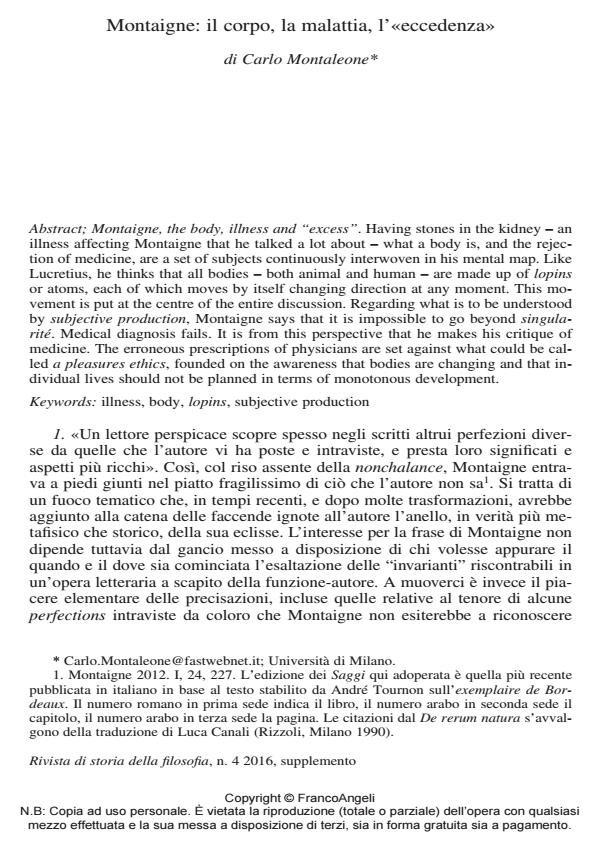Montaigne, the body, illness and "excess".
Journal title RIVISTA DI STORIA DELLA FILOSOFIA
Author/s Carlo Montaleone
Publishing Year 2016 Issue 2016/suppl. 4
Language Italian Pages 14 P. 97-110 File size 109 KB
DOI 10.3280/SF2016-004-S1008
DOI is like a bar code for intellectual property: to have more infomation
click here
Below, you can see the article first page
If you want to buy this article in PDF format, you can do it, following the instructions to buy download credits

FrancoAngeli is member of Publishers International Linking Association, Inc (PILA), a not-for-profit association which run the CrossRef service enabling links to and from online scholarly content.
Having stones in the kidney - an illness affecting Montaigne that he talked a lot about - what a body is, and the rejection of medicine, are a set of subjects continuously interwoven in his mental map. Like Lucretius, he thinks that all bodies - both animal and human - are made up of lopins or atoms, each of which moves by itself changing direction at any moment. This movement is put at the centre of the entire discussion. Regarding what is to be understood by subjective production, Montaigne says that it is impossible to go beyond singularité. Medical diagnosis fails. It is from this perspective that he makes his critique of medicine. The erroneous prescriptions of physicians are set against what could be called a pleasures ethics, founded on the awareness that bodies are changing and that individual lives should not be planned in terms of monotonous development.
Keywords: Illness, body, lopins, subjective production
Carlo Montaleone, Montaigne: il corpo, la malattia, l’«eccedenza» in "RIVISTA DI STORIA DELLA FILOSOFIA" suppl. 4/2016, pp 97-110, DOI: 10.3280/SF2016-004-S1008